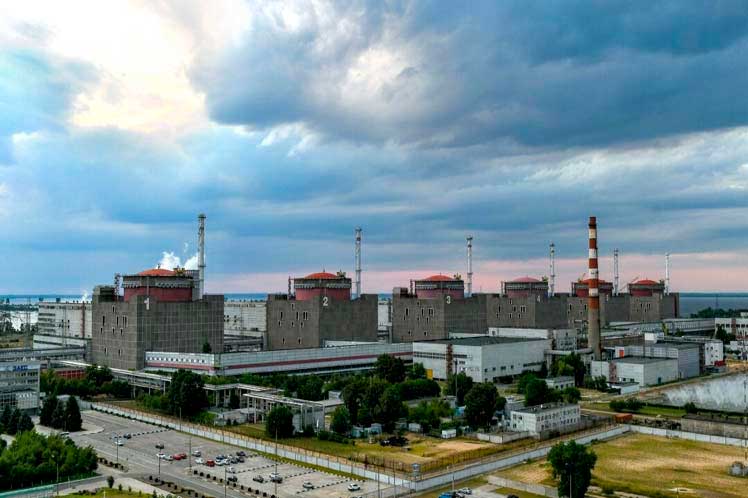“There were bombings during the day, there were 29 of them, we recorded each attack,” the official explained, and specified that nine of them hit the industrial zone, 17 hit the nuclear power plant directly and another three the Kamenka-Dneprovskaya city area.
A team from the RT network visited the facilities of the nuclear power plant, where they showed the numerous impacts left by artillery shells on the walls, holes in the ground and other traces of destruction caused by Ukrainian attacks, which take place almost on a daily basis.
Both the Donetsk and Russian authorities have been denouncing without result the attacks against the Zaporozhie plant by Ukrainian troops.
The United Nations Security Council met twice this week at the request of Moscow in order to put an end to the bombing of the plant. Russia’s permanent representative to the UN, Vasili Nebenzia, stressed that the continuation of the attacks may trigger a “nuclear accident with catastrophic consequences for the entire European continent”, worse than the one that took place in Chernobyl.
However, the accusations trying to pin to blame on the Russian Army for the attacks and the worsening of the situation have not stopped. Moscow has made it clear time and again that its military has no reason to bombard the nuclear power plant and, on the contrary, is working in coordination with the plant’s employees to prevent a nuclear disaster.
The Russian military forces have not deployed heavy weapons within the territory of the plant and its perimeter is guarded by personnel from the Russian National Guard and troops specialized in radiochemical security, the Ministry of Defense of the Russian Federation said.
pgh/llp/mem/odf









